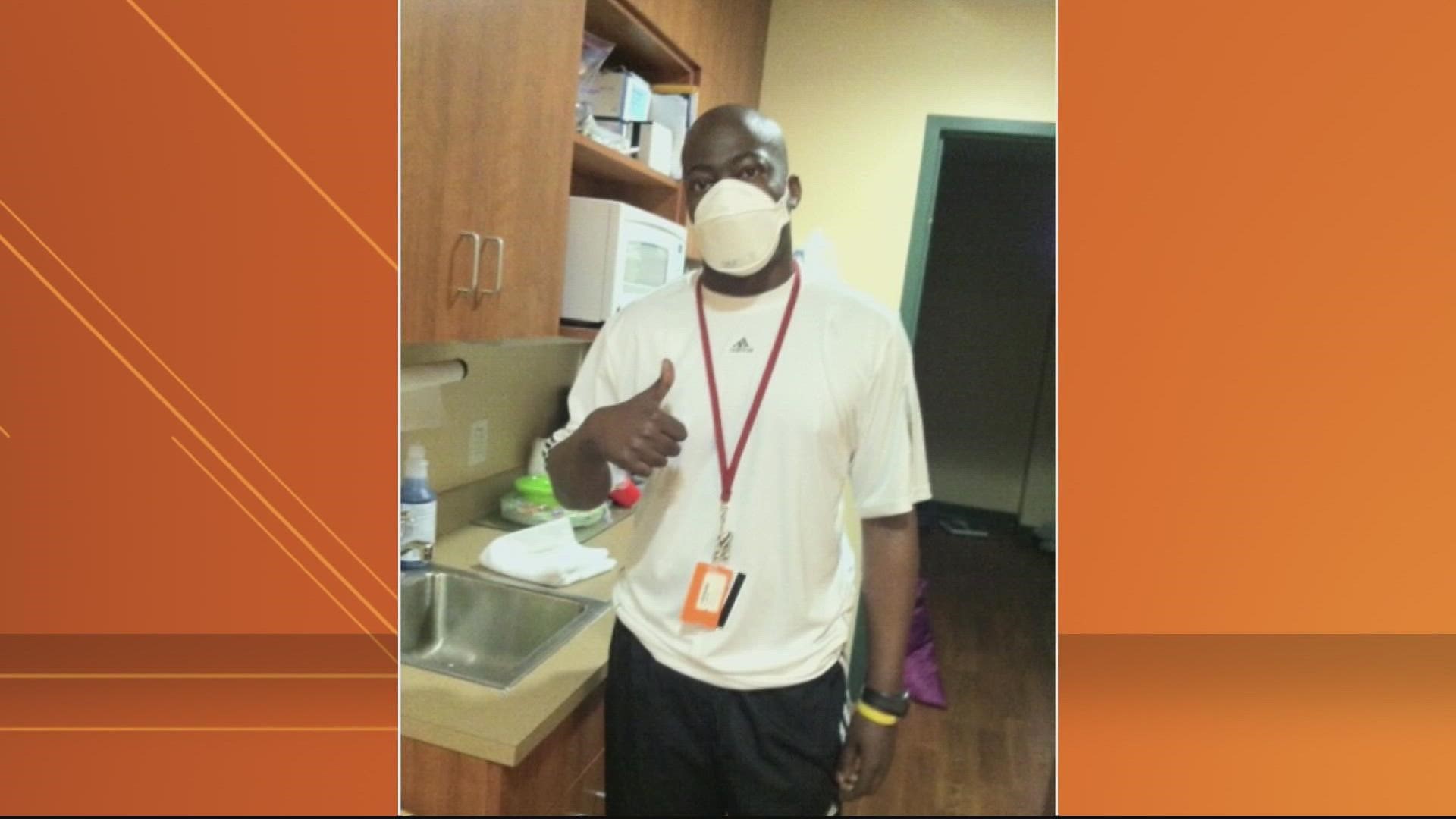WASHINGTON — Firefighters put their lives on the line every day. But it's not just the fire that puts them at risk. According to the International Association of Firefighters (IAFF), occupational cancer is now the leading cause of death among firefighters, surpassing heart disease.
Sgt. Frelimo Simba, a DC Firefighter was diagnosed with Stage 4 Hodgkins back in 2011. Simba said that his diagnosis was tied to his exposure to toxic chemicals as a firefighter.
"It's about the aftermath of the fire," he said. "The things we may not see until five to ten years later."
His colleague, Lt. Jordan Wiley, was diagnosed with appendiceal cancer, which then spread throughout his abdominal cavity. He beat the disease when he was 31-years-old, and is now back to work.
"Having a wife and kids now - it certainly it's something that's in the back of my mind," he said.
Joe Schumacher, a Virginia firefighter, from the Firefighter Cancer Support Network (FCSN) has been diagnosed with three separate cancers over his career: Testicular, non-hodgkins and prostate cancers.
"The first time I was 29 years old," he said. "The second time, I was 46. And this time, I was 55.”
All three shared their stories with WUSA9, as a part of Fire Fighter Cancer Awareness Month. The IAFF and FCSN organized this month to raise awareness, to help firefighters avoid exposure.
AVOIDING EXPOSURE:
Completely avoiding exposure to carcinogens is impossible for firefighters. Every time they suit up to face a fire, they are potentially exposed, since the smoke is often full of toxic carcinogens.
"We need to treat any fire we go to just like they're a hazmat call," said Schumacher. "The reason I say that is that we don't know exactly what exactly is burning on each call we go to."
Lt. Wiley said that the culture is starting to change at many fire departments, as people become more aware of the risks.
"It used to be a badge of honor to come out of a fire looking dirty," he said. "It showed that you had done a lot of work inside… Now we try to work harder to make sure our gear is clean to reduce that exposure."

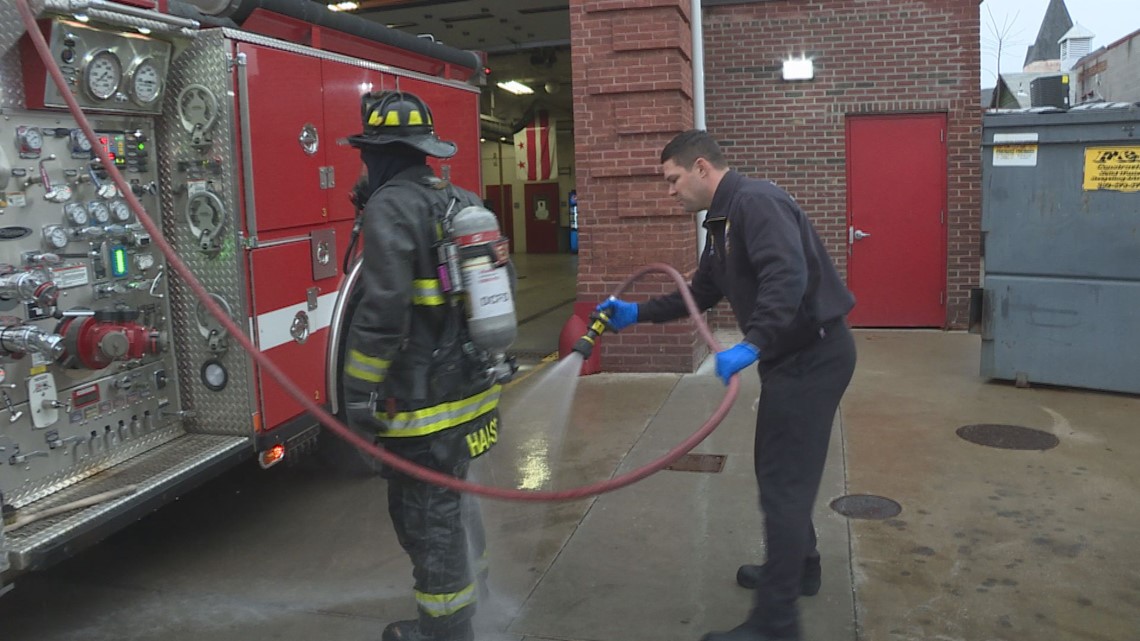
Wiley showed WUSA9 their new procedure, following a fire. As soon as a firefighter leaves a blaze, they are hosed down, and scrubbed with a brush to wipe away chemicals.
Wiley said that studies have shown that this process may reduce exposure by approximately 85 percent.
Firefighters in D.C. also use sanitary wipes, after removing their gear, to try and clean the possible carcinogens from their skin. Crews also wear hoods that block particulates in the air, in an effort to reduce the amount of toxic chemical inhaled.

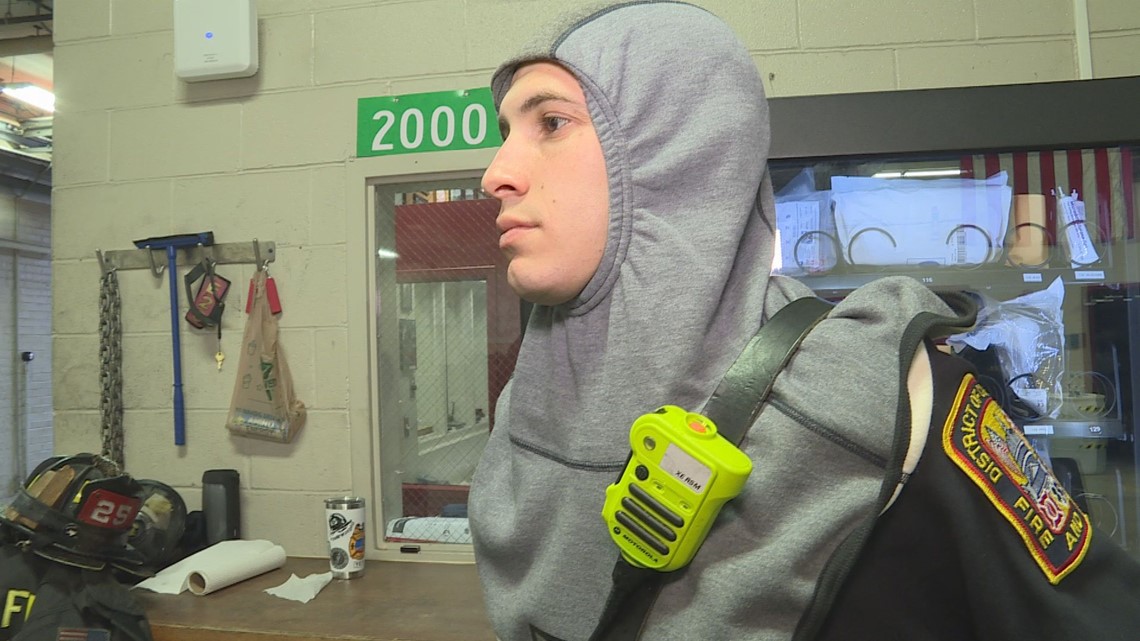
"The fact is that cancer is the number one biggest killer of firefighters right now," said Schumacher.
Schumacher said that one of the main reasons for this awareness month is to make sure firefighters are aware of this life-saving action.
“I always ask the firefighters," he said. "‘What’s it worth to you? Do you want to one day walk your daughter down the aisle? Do you want to see your grandkids one day?’”
THE FIGHT TO CHANGE LAWS
Firefighters in D.C. have also been pushing to change D.C. laws to expand the number of cancers, that are covered as an 'occupational disease.'
When Sgt. Frelimo Simba was diagnosed in 2011, cancer was not covered as an occupational disease. While he underwent Chemotherapy, his fellow firefighters had to step up and help.

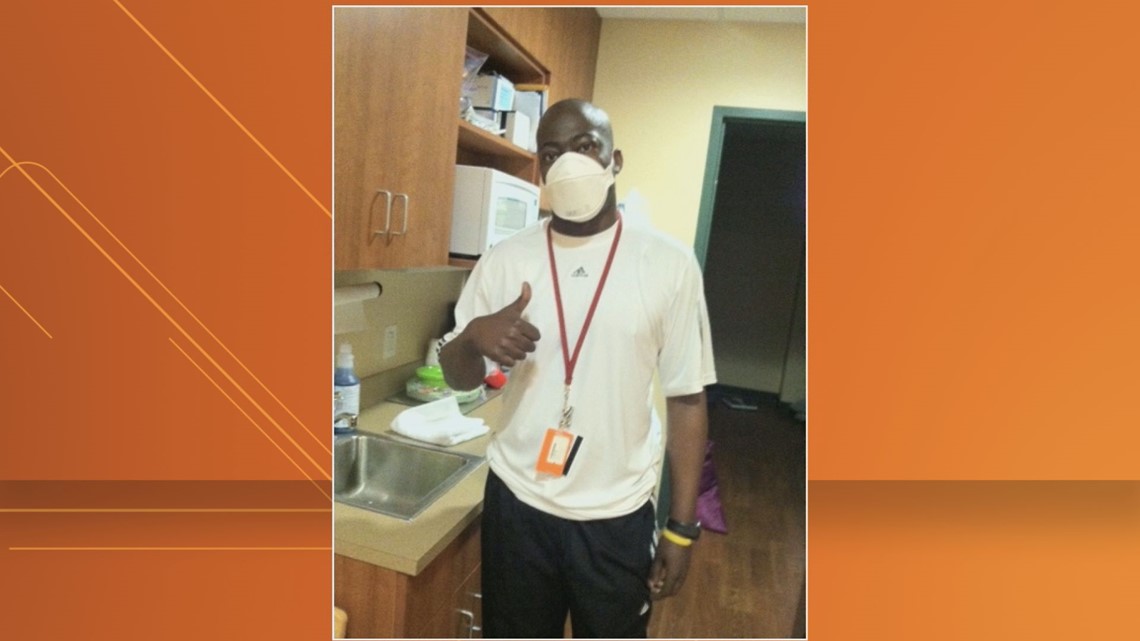
"For the years that I was off," he said. "Members worked for me so I could continue to get paid and pay bills. So I could get treatment.”
Simba and others didn't think this was right, so in 2012, an effort was underway to change the law. In grainy 2012 video, firefighter Preston Williams could be seen pushing DC Council to designate eight cancers as occupational diseases.
“I am here today to give you testimony on being a prostate cancer patient and survivor,” he told members of D.C. Council.

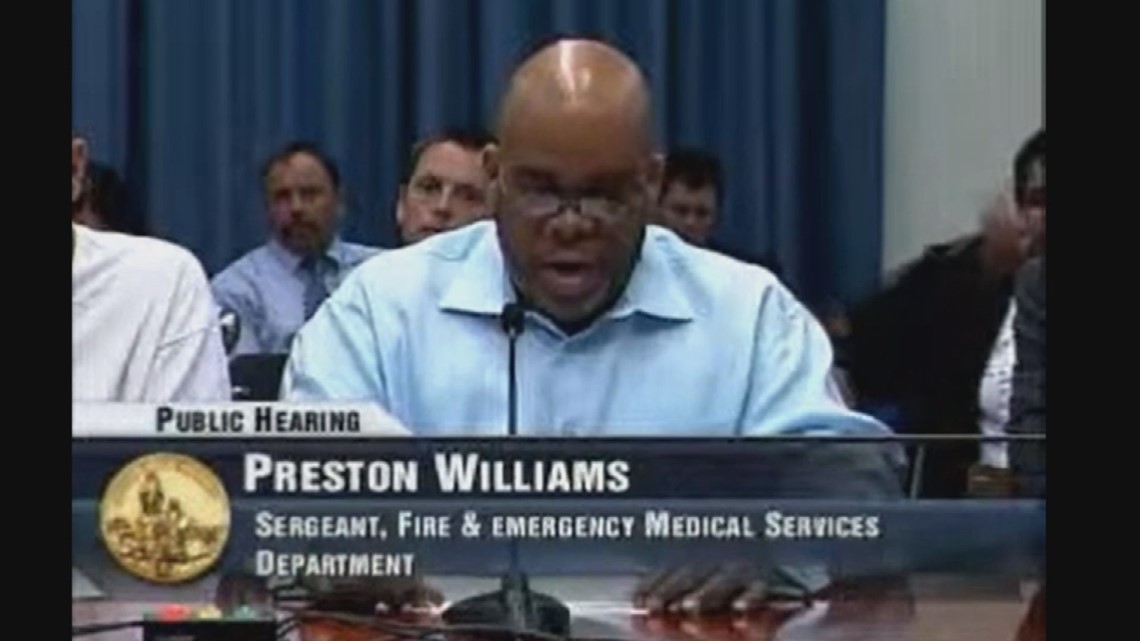
Williams, who was a good friend of Simba, was successful in getting the law enacted in 2013. It designated Leukemia, Breast, Ovarian, Pancreatic, Prostate, Rectal, Testicular, and Throat Cancers as occupational diseases.
Sadly, in 2016, Williams died as a result of his cancer diagnosis.
"He embodied that fight," said Simba. "That push to make things better. And also you saw in him the will to live."
All these years later, Simba is pushing for a new change, that would designate ten more cancers as occupational diseases. They are pushing for cancers such as Colon, Multiple Myeloma, and Lymphoma to be covered. They are also pushing for Kidney, Thyroid, and Bladder Cancers to be covered, as they are in both Maryland and Virginia.
“A lot of us feel that it could have been done a long time ago," he said. "And it should be done.”
At this time, no bill has been introduced to expand the coverage to these other cancers, although Simba said they are already starting the conversation with lawmakers.
A spokesperson for Mayor Muriel Bowser said the following in a statement:
"We're open to review a proposal. Our main priority is to protect and support our firefighters."

